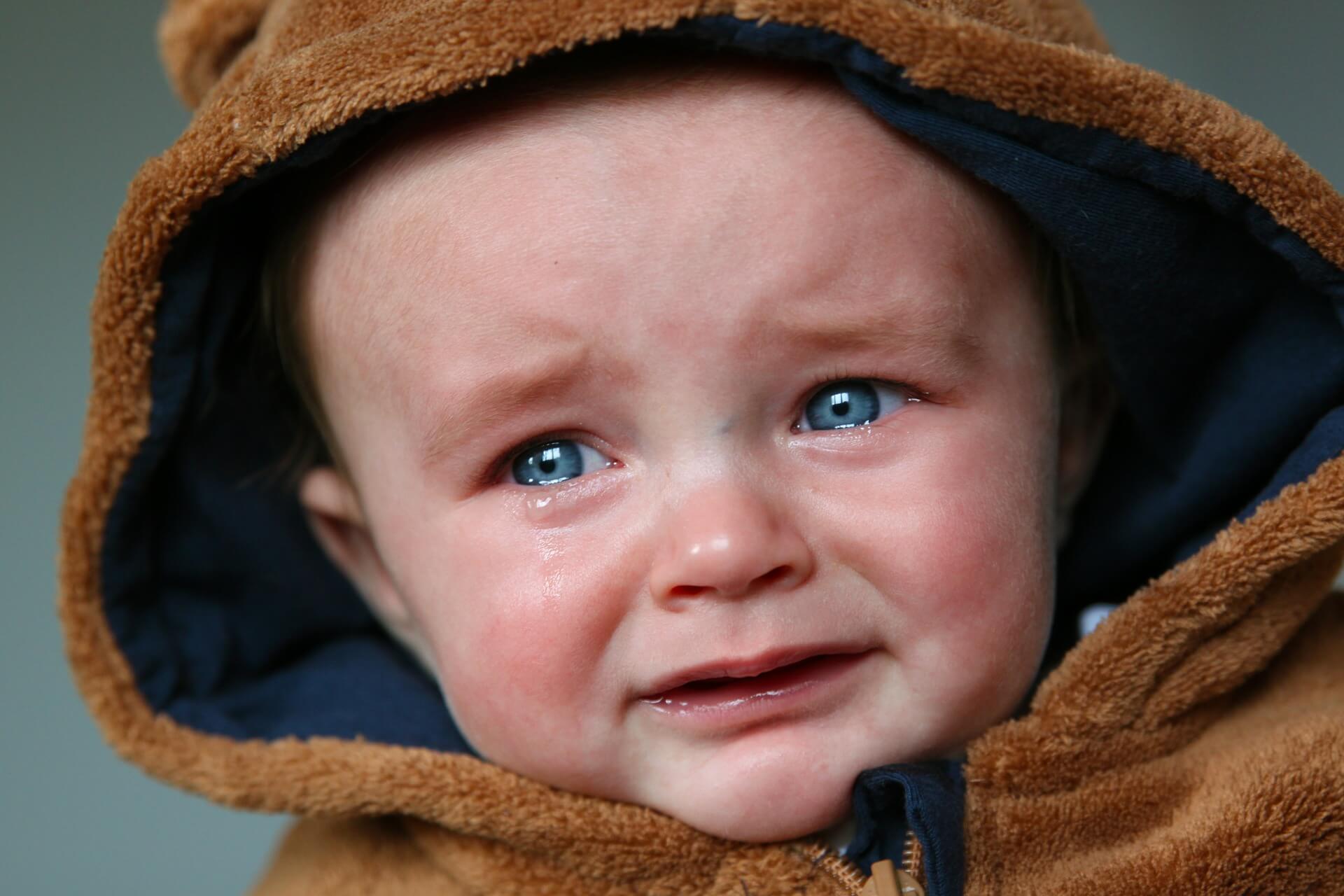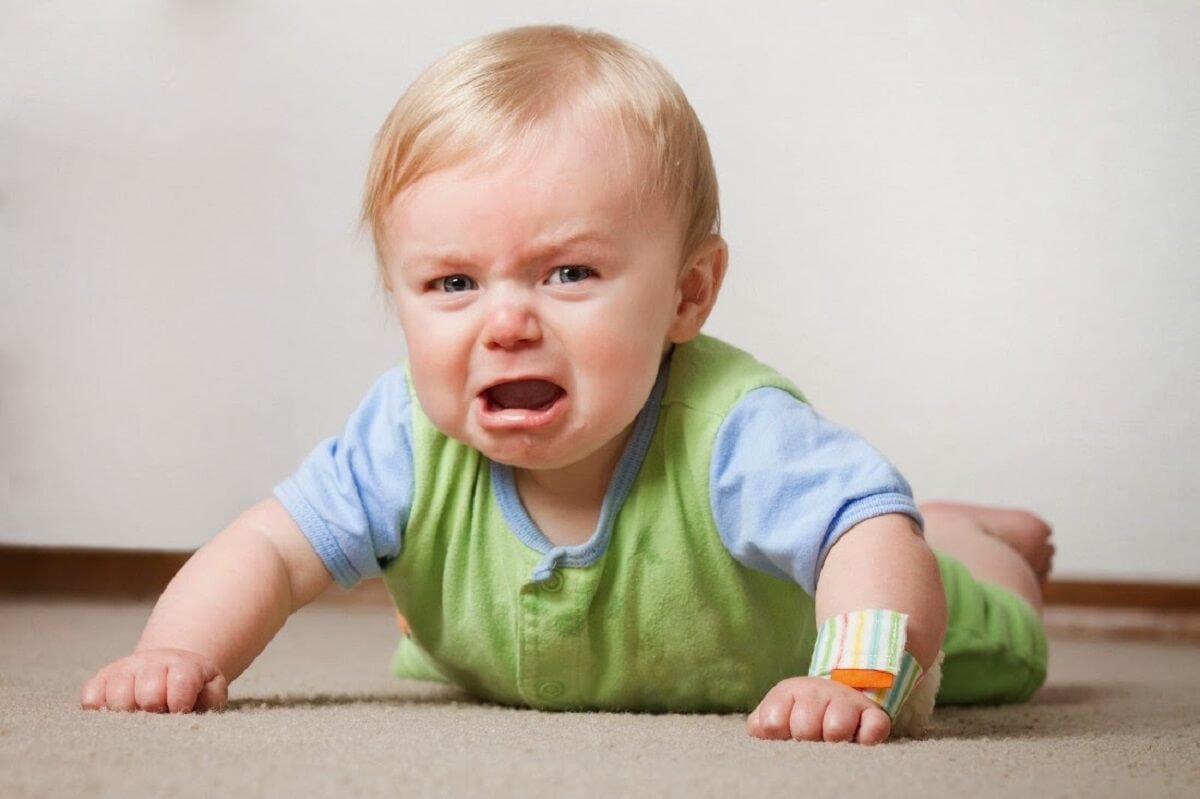Kids Need Us During Temper Tantrums

We all know it and, at least indirectly, we accept it: kids need us. For so many reasons, we’re simply their world.
They need us to grow and develop, not only physically, but also mentally, including their emotions, and particularly when they’re having a tantrum.
The values, emotional intelligence and personality traits that each child builds don’t come free. As responsible adults, we lead by example.
Without realizing it, we’re teaching them with our daily actions. Our children observe us, learn from us and copy us.
For that reason, it is counterproductive to ignore your child when they’re in the middle of a tantrum. That’s probably surprised you! Why shouldn’t we?
We’re going to explain some important reasons, just so you have an idea about this topic. Comforting your little one who is going through a tantrum is more important than you could imagine.
What can I do with their tantrums?
With a lot of calm and infinite patience, try and neutralize the tantrum. The ultimate goal here is that the child will be able to connect with his feelings. Feelings that, clearly, are too much for him.
He doesn’t know how to control himself and finds it impossible to deal with it. That’s why it’s impossible for him to communicate in an adequate way.
There is no way of showing those emotions correctly. There is no reaction that can show it in a logical way. In moments like these, kids need us in order to connect with their emotions.

They will forget what you said, they will forget what you did, but they will always remember how you made them feel
-Maya Angelou-
Children need us, in good times and in bad
Kids need us in the good times, but especially in the bad. In the good times our role is to recognize achievements, successes and victories. In this way, we contribute to a more than positive reinforcement of their personality.
Good self-esteem, security and self-confidence are the consequences of this reinforcement. This way the child will learn to gain autonomy and independence. You’re giving wings to your child, but he’s the one who has to learn to fly as high as he can and as far as he wants to.
However, children also need us in the bad times. This is when they need our presence, company and support the most. Therefore, it’s essential as parents that we act in a positive way towards a tantrum.
It’s all about helping the child through the process. Teaching them to manage that huge tide of emotions that they can’t control.
Showing them the correct way not only to channel it, but also to bring it out. Understanding how they feel and helping them discover what feelings are suffocating them.
This basically means developing emotional intelligence. Educating them from the heart, in a positive way. Raising them with assertiveness, empathy and respect.
With limits, but above all with a lot of patience and love, which is all that children need in order for them to develop into a good person.

Cortisol, the stress hormone
One of the worst things that parents can do is leave a child when they’re in the middle of a tantrum. Even though the situation is troubling you and you find it hard to believe, there is an undeniable reality.
When the child is that upset, in the background there is someone who is really suffering and feeling miserable.
During these common, yet annoying childhood processes, cortisol plays a central role. It is the stress hormone that, in this specific case, circulates around the child’s body and invades their brain.
What is the result of all this? Far from those erroneous theories about children manipulating the situation, what actually happens is that the child perceives their absolute lack of control over their emotions and impulses.
Not only do they invade them, but they also control them against their will. If they lose this battle it’ll end up being doubly frustrating for them.
How should we act during the tantrum?
Your child will feel impotence. His inability to calm down or express himself will worry him greatly. He’s suffering deeply, rage is controlling his body and his mind. This is when it begins to be really evident that the child needs us so much.
After all, the same thing happens when they suffer some kind of physical harm after a typical childhood accident. The child wants us by their side, they simply want us to be with them.
Our job as parents? It’s mainly about providing them with peace and comfort.
And when it comes to emotional pain, children also seek help. Quite simply because they need that calm, security and protection that only parents can bring them. The love, affection, encouragement and motivation that we can give them becomes a vital element.
It’s clear that these little ones really need us in order to be able to connect with these emotions and feelings.
They need to understand what is happening to them, control what is too much for them, and finally, manifest their needs. It’s about managing and communicating what they’re feeling inside.
We all know it and, at least indirectly, we accept it: kids need us. For so many reasons, we’re simply their world.
They need us to grow and develop, not only physically, but also mentally, including their emotions, and particularly when they’re having a tantrum.
The values, emotional intelligence and personality traits that each child builds don’t come free. As responsible adults, we lead by example.
Without realizing it, we’re teaching them with our daily actions. Our children observe us, learn from us and copy us.
For that reason, it is counterproductive to ignore your child when they’re in the middle of a tantrum. That’s probably surprised you! Why shouldn’t we?
We’re going to explain some important reasons, just so you have an idea about this topic. Comforting your little one who is going through a tantrum is more important than you could imagine.
What can I do with their tantrums?
With a lot of calm and infinite patience, try and neutralize the tantrum. The ultimate goal here is that the child will be able to connect with his feelings. Feelings that, clearly, are too much for him.
He doesn’t know how to control himself and finds it impossible to deal with it. That’s why it’s impossible for him to communicate in an adequate way.
There is no way of showing those emotions correctly. There is no reaction that can show it in a logical way. In moments like these, kids need us in order to connect with their emotions.

They will forget what you said, they will forget what you did, but they will always remember how you made them feel
-Maya Angelou-
Children need us, in good times and in bad
Kids need us in the good times, but especially in the bad. In the good times our role is to recognize achievements, successes and victories. In this way, we contribute to a more than positive reinforcement of their personality.
Good self-esteem, security and self-confidence are the consequences of this reinforcement. This way the child will learn to gain autonomy and independence. You’re giving wings to your child, but he’s the one who has to learn to fly as high as he can and as far as he wants to.
However, children also need us in the bad times. This is when they need our presence, company and support the most. Therefore, it’s essential as parents that we act in a positive way towards a tantrum.
It’s all about helping the child through the process. Teaching them to manage that huge tide of emotions that they can’t control.
Showing them the correct way not only to channel it, but also to bring it out. Understanding how they feel and helping them discover what feelings are suffocating them.
This basically means developing emotional intelligence. Educating them from the heart, in a positive way. Raising them with assertiveness, empathy and respect.
With limits, but above all with a lot of patience and love, which is all that children need in order for them to develop into a good person.

Cortisol, the stress hormone
One of the worst things that parents can do is leave a child when they’re in the middle of a tantrum. Even though the situation is troubling you and you find it hard to believe, there is an undeniable reality.
When the child is that upset, in the background there is someone who is really suffering and feeling miserable.
During these common, yet annoying childhood processes, cortisol plays a central role. It is the stress hormone that, in this specific case, circulates around the child’s body and invades their brain.
What is the result of all this? Far from those erroneous theories about children manipulating the situation, what actually happens is that the child perceives their absolute lack of control over their emotions and impulses.
Not only do they invade them, but they also control them against their will. If they lose this battle it’ll end up being doubly frustrating for them.
How should we act during the tantrum?
Your child will feel impotence. His inability to calm down or express himself will worry him greatly. He’s suffering deeply, rage is controlling his body and his mind. This is when it begins to be really evident that the child needs us so much.
After all, the same thing happens when they suffer some kind of physical harm after a typical childhood accident. The child wants us by their side, they simply want us to be with them.
Our job as parents? It’s mainly about providing them with peace and comfort.
And when it comes to emotional pain, children also seek help. Quite simply because they need that calm, security and protection that only parents can bring them. The love, affection, encouragement and motivation that we can give them becomes a vital element.
It’s clear that these little ones really need us in order to be able to connect with these emotions and feelings.
They need to understand what is happening to them, control what is too much for them, and finally, manifest their needs. It’s about managing and communicating what they’re feeling inside.
All cited sources were thoroughly reviewed by our team to ensure their quality, reliability, currency, and validity. The bibliography of this article was considered reliable and of academic or scientific accuracy.
- Bisquerra, R. (2011). Educación emocional. Propuestas para educadores y familias. Bilbao: Desclée de Brower. http://otrasvoceseneducacion.org/wp-content/uploads/2019/04/Educación-Emocional.-Propuestas-para-educadores-y-familias-Rafael-Bisquerra-Alzina-2.pdf
- Goleman, D. (2010). La práctica de la inteligencia emocional. Editorial Kairós.
- López, M. (2008). La integración de las habilidades sociales en la escuela como estrategia para la salud emocional. Psicología sin fronteras: revista electrónica de intervención psicosocial y psicología comunitaria, 3(1), 16-19.
- Shapiro, L. E. (2002). La salud emocional de los niños (Vol. 16). Edaf.
This text is provided for informational purposes only and does not replace consultation with a professional. If in doubt, consult your specialist.








